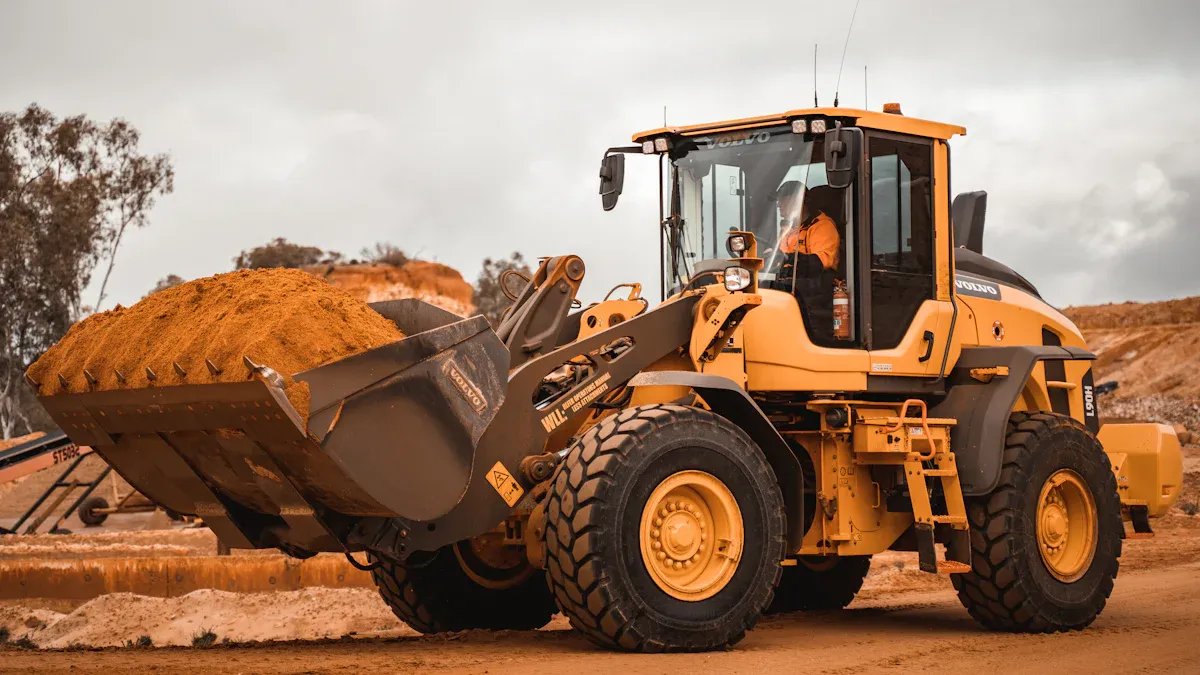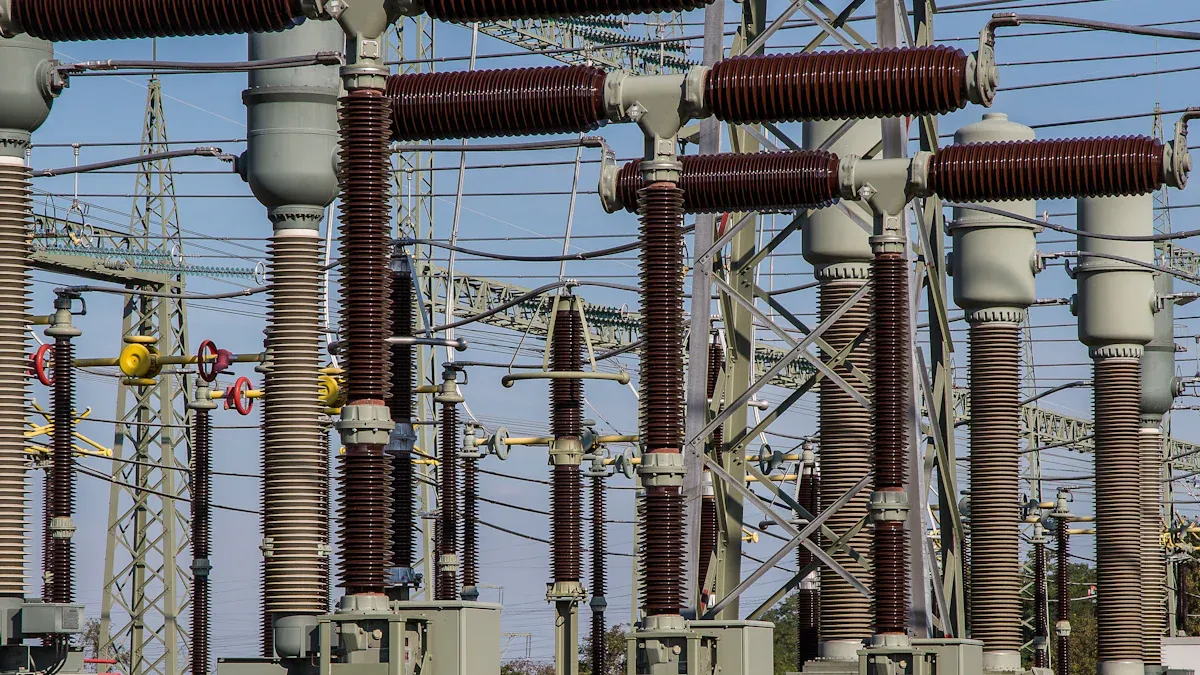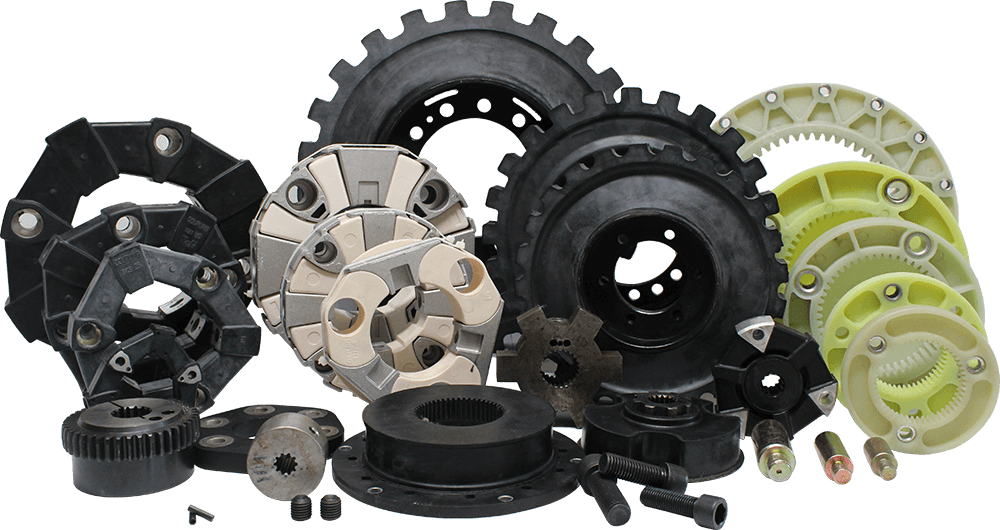
You can trust synthetic rubber seals for strong protection under heavy weight. They resist chemicals and very hot or cold temperatures. This means they last longer than other seals. These seals are tough and do not wear out easily. Materials like nitrile and polyurethane are very strong and hard to break. Many industries use these seals, like car makers and airplane companies. They work well in hard places. Synthetic rubber seals are about 58% of the market. This is because they are useful and dependable.
Key Takeaways
Synthetic rubber seals give strong protection when loads are heavy. They do not wear out fast and last longer than other seals.
These seals can handle chemicals and very hot or cold temperatures. This makes them good for many industries like cars and airplanes.
Synthetic rubber seals keep their shape and sealing power when pressed. They stop leaks and help things work well.
Picking the right synthetic rubber seal for your job saves time and money. You will not need to replace seals often.
If you have special needs, talk to suppliers like YNF Rubber. They can help you find the best synthetic rubber seals for you.
Synthetic Rubber Seals: Key Advantages

Synthetic rubber seals work well in hard places. They are strong and last a long time. These seals can handle chemicals, heat, and lots of use. You can make them fit your needs. Many businesses use them because they are easy to change. Here are the main reasons why synthetic rubber seals are special.
Chemical Resistance
Some chemicals can hurt seals. Synthetic rubber seals, like Viton (FKM), EPDM, and PTFE, do not get damaged by many chemicals, oils, or solvents. This makes them good for factories, cars, and medical tools.
In lab tests, NBR synthetic rubber seals did better than FKM with ionic hydraulic fluids for a long time. This means they stop leaks better and last longer.
Here is a table that shows how well each type resists chemicals:
Rubber Type | Chemical Resistance |
|---|---|
Viton (FKM) | Great against many chemicals, oils, and solvents |
EPDM | Good against many chemicals and weather |
PTFE | Very good against acids and bases |
Synthetic rubber seals keep your machines safe from oils, fuels, and chemicals. They do not get old or break down fast. You do not need to change them often.
Thermal Stability
Synthetic rubber seals work even when it is hot or cold. Some, like fluoroelastomers and silicone, stay soft and strong in high heat. This is important for car engines and airplanes, where it gets very hot.

Here is a table that shows how much heat each seal can take:
Material Type | Temperature Range (°F) | Short-term Exposure (°F) |
|---|---|---|
Fluoroelastomers (FKM) | Up to 400 | Up to 600 |
Fluorosilicone | Up to 400 | Up to 600 |
Silicone | Up to 400 | Up to 600 |
Natural Rubber | 180 – 300 | N/A |
Nitrile (NBR) | 180 – 300 | N/A |
EPDM | 180 – 300 | N/A |
Ethylene Propylene | High steam resistance | N/A |
Fluoroelastomers and silicone seals keep their shape in heat. Natural rubber and some others break down faster in heat. This is why synthetic rubber seals are better for hot or cold places.
Tip: If you need seals for engines, machines, or outside, synthetic rubber seals last longer and work better than natural rubber.
Abrasion and Durability
You want seals that do not wear out fast. Synthetic rubber seals do not break down from rubbing or pressure. This is good for machines that move a lot or work in rough places.
Synthetic rubber seals give you:
Better aging and weathering resistance
Strong oil and petroleum resistance
Great UV protection
Good work in tough places
You can get synthetic rubber seals made for your job. For cars, you can use special seals for engines and brakes. For healthcare, you can use seals for medical tools. This helps you get the best safety and work.
Here are some real-life uses:
Application | Description |
|---|---|
Check Valve Medical Seals | Control oxygen flow in a device, making a tight space for faster healing. |
Bidirectional Medical Seals | Handle different pressures in IV systems, stop leaks, and help give medicine right. |
Thin-Walled Diaphragm Seals | Used in healthcare for filtering and giving out medicine, with long life and no aging. |
Seal-Coupler for Pneumatic Actuation | Helps fast pill giving with a special seal for no leaks. |
Note: You can ask for synthetic rubber seals with special hardness, softness, or chemical resistance. This means you always get the right seal for your job.
If you want strong and good synthetic rubber seals, try YNF Rubber. They have many seals for different jobs and can help you find the best one.
Comparison with Other Seal Materials
Metal Seals
Metal seals are used where pressure or heat is very high. They can handle hot temperatures and do not break down fast. Metal seals work in engines and big machines. But metal seals do not bend much. If you need a seal that moves, metal is not the best. Metal seals can rust if they touch some chemicals. You might need to change them more often in places with strong chemicals.
Thermoplastics
Thermoplastic seals, like TPE and TPR, have special benefits. For example:
TPR does not wear out easily.
TPR works well with heavy loads.
TPEs are bendy and can be recycled.
TPEs bend easily, which helps moving parts.
But synthetic rubber seals last longer in hard places. They resist heat and chemicals better than most thermoplastics. Here is a table to compare how they handle heat and chemicals:
Seal Type | Temperature Resistance | Chemical Resistance |
|---|---|---|
PTFE | Up to 260°C (500°F) | Very good against acids, alkalis, and solvents |
Nitrile | Up to 120°C (248°F) | Great oil and fuel resistance |
EPDM | Up to 150°C (302°F) | Best for water, steam, and ozone |
Silicone | Up to 200°C (392°F) | Not great with chemicals, good for high heat |
You might pick thermoplastics for bending and recycling. But for tough jobs and long life, synthetic rubber seals work better.
Natural Rubber
Natural rubber seals stretch a lot and are strong. They work best when you need a seal to move. Here is a table to show how natural rubber and synthetic rubber compare:
Property | Natural Rubber | Synthetic Rubber |
|---|---|---|
Elasticity | Very high | Changes by type |
Tensile Strength | Higher | Good, but not as high |
Environmental Resistance | Gets old faster | Very strong and lasts longer |
Special Benefits | Good for moving | Great for chemicals and heat |
Natural rubber does not last long in tough places. It can break from heat, chemicals, or too much pressure. Synthetic rubber seals do not have these problems. They last longer and you do not need to change them often. This saves you time and money.
Tip: If you want a seal that can handle chemicals, heat, and pressure, synthetic rubber seals are a good choice.
Performance Under Load

Environmental Resistance
You need seals that work in hard places. Synthetic rubber seals do not break from sun, rain, or chemicals. They stay strong even when the weather changes a lot. Each type of synthetic rubber is good for different jobs. EPDM is great outside because it blocks UV rays and ozone. Neoprene is tough in bad weather. Butyl rubber does not get weak from chemicals. Silicone stays stretchy when it is cold.
Here is a table to show which rubber is best for each job:
Rubber Type | Environmental Factor | Resistance Characteristics |
|---|---|---|
EPDM | UV Exposure | Excellent UV and ozone resistance, ideal for outdoor applications |
Neoprene | Weather Resistance | Good durability in harsh conditions, suitable for outdoor use |
Butyl | Chemical Stability | Excellent for chemical storage solutions |
Silicone | Low Temperature | Maintains elasticity at lower temperatures, broadening application scope |
If you need seals for outside or with chemicals, pick the right synthetic rubber.
Oil and Compound Resistance
Synthetic rubber seals keep oil and chemicals out of your machines. Some rubbers get bigger or break when they touch oil. Others stay strong and do not change. Fluorocarbon and nitrile rubbers are best for oil. The chart below shows how much each rubber grows in oil:

If the oil swell number is low, the seal works better. Fluorocarbon only swells 10%. Polyisoprene swells a lot, up to 150%. Nitrile rubber is also good for oil, so it is used in cars and trucks. Neoprene and polysulphide rubbers also work well with oil and chemicals.
Tip: Always check what oil or chemical your seal will touch. Pick the rubber that matches your job for the best results.
Long-Term Reliability
You want seals that last a long time, even under pressure. Synthetic rubber seals keep their shape and sealing power when squeezed or stretched. They bounce back after being pressed, so they stop leaks and keep dirt out. Engineering studies show that system pressure helps press the seal tighter, making it work better.
Here is a table that shows how seals keep working under load:
Aspect | Evidence |
|---|---|
Compression Effect | System pressure on the seal surface attempts to compress the seal axially, enhancing sealing integrity. |
Resilience of Rubber | The resilience of rubber creates a tight sealing effect, effectively containing fluids and excluding contaminants. |
Chemical Compatibility | If a seal leaks or shows signs of damage, it may be due to adverse reactions with the fluid, highlighting the importance of chemical compatibility. |
Synthetic rubber seals also resist aging. EPDM and TPV rubbers keep sealing well after many years, even when the temperature changes. You can trust these seals to last longer than many metal or plastic seals.
You get many benefits when you choose synthetic rubber seals for tough jobs. These seals last longer, resist chemicals, and work well in hot or cold places. You can use them in many industries. If you want strong and reliable seals, YNF Rubber gives you good options.
Tip: Pick synthetic rubber seals for machines that need to handle heavy loads and harsh conditions.
FAQ
What makes synthetic rubber seals better for heavy loads?
Synthetic rubber seals keep their shape under pressure. You get strong protection because these seals resist squeezing and stretching. They do not crack or break easily. This helps your machines work longer without leaks.
Can synthetic rubber seals handle extreme temperatures?
Yes, you can use synthetic rubber seals in very hot or cold places. Materials like silicone and fluoroelastomers stay flexible and strong. They do not melt or get brittle. This makes them safe for engines and outdoor equipment.
Are synthetic rubber seals safe with chemicals and oils?
You can trust synthetic rubber seals with many chemicals and oils. Nitrile and Viton seals resist swelling and breaking. They keep your machines safe from leaks. Always check the chemical type before choosing your seal.
How long do synthetic rubber seals last?
Synthetic rubber seals last for years. They resist aging, sunlight, and weather. You do not need to replace them often. This saves you time and money.
Tip: For long-lasting seals, you can ask YNF Rubber for help. They offer many types for different jobs.
Where can I get reliable synthetic rubber seals?
You can find strong and dependable synthetic rubber seals at YNF Rubber. They offer many options for cars, machines, and medical tools. You get expert advice and quality products every time.









